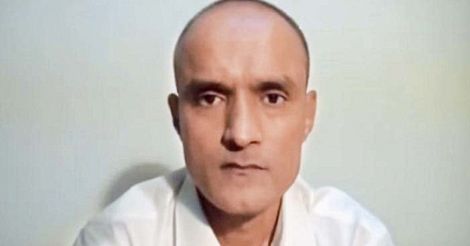The epic battle waged by the Italian government to rescue their mariners, whose guilt of killing two Indian fishermen was beyond question, was a matter of envy for overseas Indians. The Italians left no bilateral or multilateral stone unturned to get them released.
The foreign secretary of Italy spent several weeks in Kerala and remained in touch not only with the central and state governments, but also with the fishermen, the church and opinion makers. According to reports, he even organized compensation for the victims, while he was fighting the legal and political battles.
Subsequently, Italy disrupted bilateral relations with India and approached the United Nations, NATO and the European Union to agitate against India. Italy also sought the assistance of the International Tribunal for the Law of the Sea and obtained a verdict in its favor. The mariners are now safe in Italy, even though the final resolution of fine legal points has been entrusted to a UN court.
What settled the issue was the assertion of the European parliament that the detention of the mariners without framing charges against them was a violation of their human rights.
At a Pravasi Bharatiya Divas Conference in Delhi held around the time of the early Italian moves, many Indians wondered whether India would go to this extend if an Indian was threatened in a similar manner by a foreign government. The presumption was that India would leave such cases to the mercy of foreign governments. The matter was not formally raised and, therefore, the Indian government did not have to make any commitment.
The way India handled the case of Kulbhushan Jadhav, a former Indian naval officer, who was sentenced to death by a military court in Pakistan, alleging spying and terrorism, was decisive, determined and bold. Even at a time when India-Pakistan relations were at a low ebb, India took up the issue formally and firmly with Pakistan and made it realize that India would go to any extent to save the life of Jadhav. India denied that he was an Indian spy and stated that he was a former Indian sailor, who was engaged in business in Iran. He was kidnapped by Pakistan, taken to Baluchistan, accused of spying for India and a court-martial sentenced him to death.
India accused Pakistan of violating the Vienna Convention on Consular Relations by denying access to Jadhav by Indian consular officers. Even his whereabouts were not known. This was a violation of fundamental human rights of an Indian citizen. Pakistan responded negatively to these charges and maintained that the only way open to Jadhav was to seek mercy from the military authorities and the president of Pakistan.
When the Indian minister of External Affairs stated that India would go to any extent to save Jadhav, many thought that she was contemplating military action. But India decided to take the matter up with the International Court of Justice (ICJ) to ensure that the sentence is stayed and the merits of the case are examined by the court, with a view to getting Jadhav released.
India’s decision to move the ICJ was a surprise, as it has been India’s policy not to take up bilateral issues with Pakistan to international bodies. The experience of taking Pakistan’s aggression against India to the UN Security Council for an immediate settlement of the dispute had proved to be counterproductive.
Pakistan, on the other hand, had raised the issue at every conceivable international forum. That the government of India took the risk of getting embroiled in a long legal battle without an outcome is sufficient indication that it greatly values the life of an Indian citizen and it is willing to go to any extent to save it.
India phrased its requests to the ICJ with care not to bring in bilateral disputes and confined itself to four requests:
1. Relief by way of immediate suspension of the sentence of death awarded to the accused.
2. Relief by way of restitution in interregnum by declaring that the sentence of the military court arrived at, in brazen defiance of the Vienna Convention rights under article 36 and in defiance of elementary human rights of an accused, which are also to be given effect as mandated under Article 14 of the 1966 International Covenant on Civil and political Rights, is violative of international law and the provisions of the Vienna Convention.
3. Restrain Pakistan from bringing the sentence awarded by the military court into effect, and direct it to take steps to annul the decision of the military court, as according to the law in Pakistan
4. If Pakistan is unable to annul the decision, declare the decision illegal, being violative of international law and treaty rights. Restrain Pakistan from action in violation of the Vienna Convention and international law by giving effect to the sentence or the conviction in any manner, and direct it to release the convicted Indian National forthwith.
One of the major risks was that the ICJ might declare that it had no jurisdiction over the case. But fortunately, the court not only accepted jurisdiction, but also accepted India’s first two requests, thus registering a major legal victory for India.
But this is only a provisional measure and the court would consider the other requests in detail. Pakistan has already requested for a “rehearing” of the first part. In these circumstances, it is possible that political questions will be brought into the case and the case would drag on forever.
Whatever may be the final outcome of the Jadhav case, the fact remains that the readiness of the government to take up the case to the ICJ should comfort overseas Indians. Of course, each case may have different considerations, but India has made a point, which will not be lost on foreign governments.

























 Kulbhushan Jadhav. File photo
Kulbhushan Jadhav. File photo